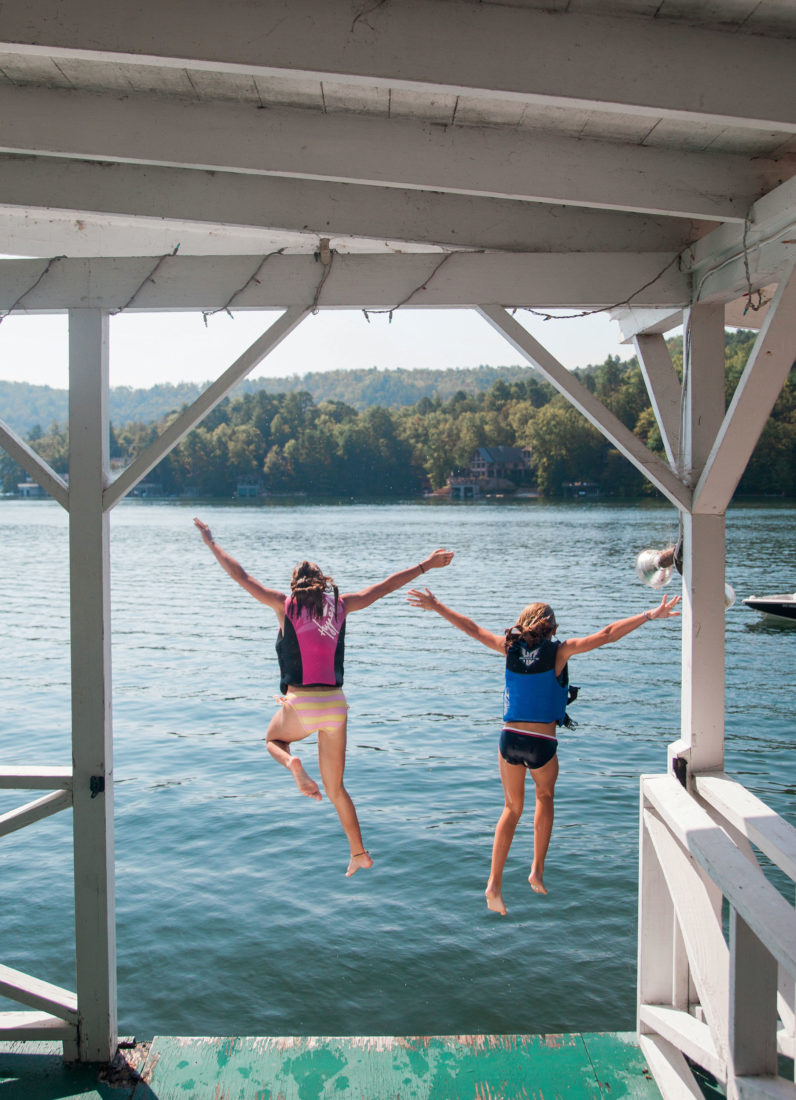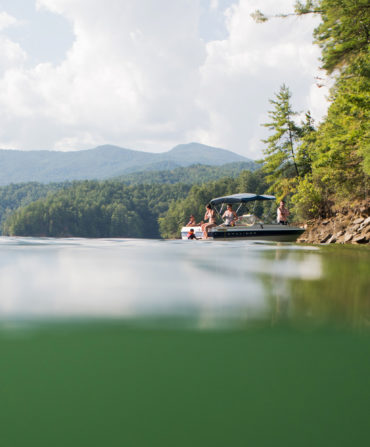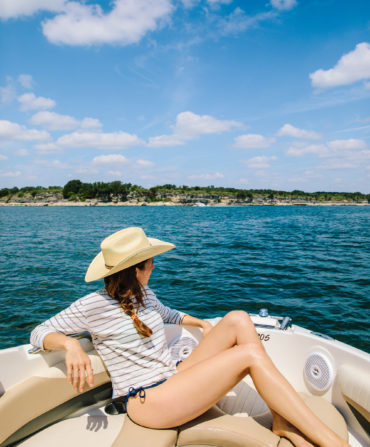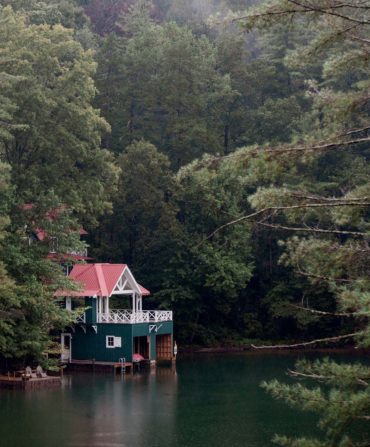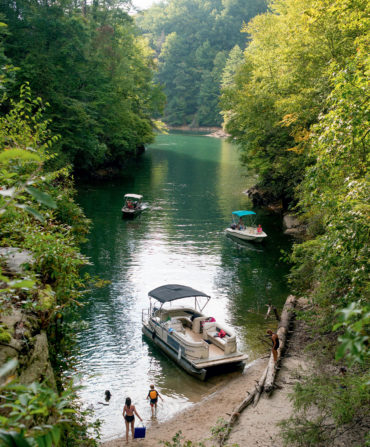Every few years, when I’m passing through my hometown of Columbia, South Carolina, I take a short detour from wherever it is I’m going and point my car down a vertiginous hill that opens onto a cul-de-sac called Lelias Court. Returning to the street I grew up on isn’t easy for me, and it hasn’t been ever since I left, a few months shy of my sixteenth birthday. Too much is different, too much has changed.
But, like a salmon heading back to the waters that spawned it, I go back anyway, not to see the house I once lived in (it’s long gone) or to visit my old neighbors (they’re long dead), or to run diagnostics on my mortality-awareness alarms. I go back because Lelias Court sits on the southwest corner of Lake Katherine, and that 150-acre lake, despite its man-made suburban unremarkableness, taught me how to explore and dream and wonder.
I realize that writing an ode to a man-made lake is about as inspired as writing one to a golf course, or a parking lot. But consider, for a second, how active a child’s imagination would have to be for a manufactured lake in the middle of Columbia to seem like an adventure outpost, and then you’ll understand what kind of child I was.
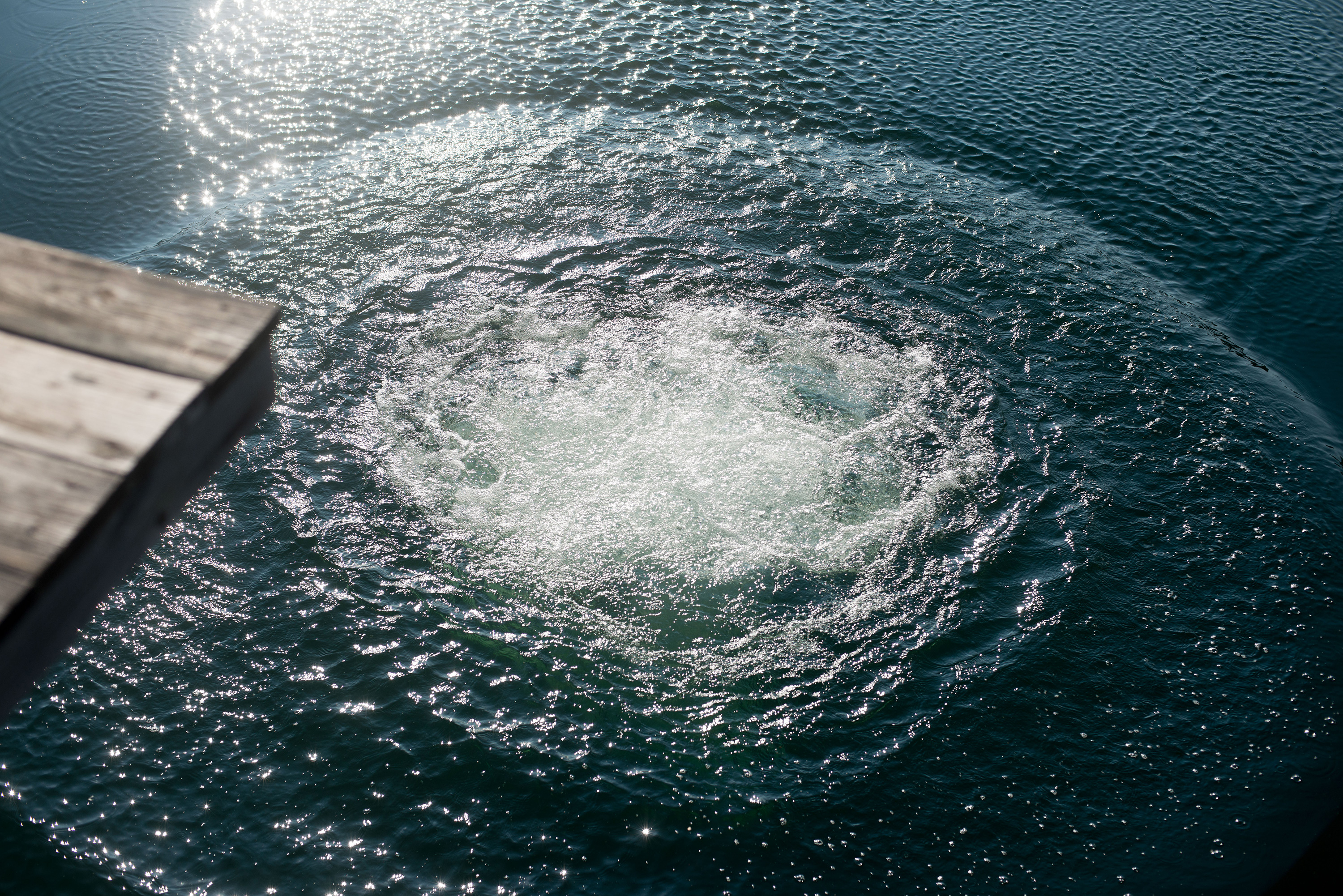
Leigh Webber
Launching off a dock into Georgia’s Lake Rabun. Some kids have clubhouses or tree forts where their minds are free to run loose; I had a dock—a ten-by-ten square of rotting plywood, with a sagging bench and one demoralized plank that functioned as a boat slip for the Sunfish sailboat that we never used. To get down there from the house, you had to run a gauntlet of ivy-choked flagstones that copperheads liked to sun themselves on, then jump over a boggy dip in the path where crabgrass and drifts of pine straw turned to pluff mud. Off to the right, a Pawleys Island hammock that had seen better days swayed feebly in the wind. The whole setup wasn’t much to look at, but in my eight-year-old imagination, the dock on that lake was a secret place: a hideout, a laboratory, a spaceship, a time machine.
In one of my favorite photos taken on the dock, I am maybe four, with a downy fringe of blond bangs swept over my forehead and a pair of binoculars slung around my neck. I am smiling like I know something. It is probably midmorning, and, with my parents’ help, I am scouting the water for ducks or geese, or—fingers crossed— snowy egrets and great blue herons. As I spend more time out there, I’ll figure out how long turtles surface to breathe and that muskrats build nests, not dams. But even in those first days, I have already discovered that in an unnatural setting, nature can still take over.
In two years, with my feet dangling in the water at dusk, I’ll begin catching tadpoles and lightning bugs, and I’ll find a turtle I’ll name Sherman. I’ll learn to cast a line, hoping to haul in a sea monster or a mermaid, but having to settle for bream.
In three, my father will show me how to find Orion in the night sky. We will map the stars for hours, listening to the frogs and cicadas.
In four, I’ll see the blade of a neighbor’s garden hoe bite into the neck of a cottonmouth for the first time. I will feel a bone-deep sense of guilt and horror watching the animal die, even though I realize just how close I came to stepping on it and understand venom.
In five, I will strain my ears toward a haunted chorus floating across the water. The voices belong to soldiers from Fort Jackson, which sits just beyond the trees on the other side of the lake. The wind distorts their training cadences until it sounds like they are battling banshees. In fact, they are mobilizing for war in the Persian Gulf.
Our gulf, our lake, remains peaceful, even as the world around it grows more complicated and confusing. In the summers, I will watch my mother slather herself with baby oil and bask like a lizard on the dock while reading embossed-cover paperbacks. I will spread out a towel next to her, trace patterns in the clouds, and imagine we are on a Nile barge with Cleopatra or rafting the Mississippi with Tom and Huck. I’ll drift off to sleep as the wakes from ski boats lap against the pilings.
Over the years, I will swim in Lake Katherine exactly once, because I can’t see the bottom and I’ve spied enough snakes and snapping turtles by then to know the lake is more their home than mine. But at twelve, I’ll gamely venture toward the far shore in an inflatable dinghy meant for swimming pools. When the battery-operated motor sputters out halfway across, I’ll spend two hours paddling back home with a plastic oar, defiant and—God help me—ready to try again.
Once I am a teenager, the dock will be the operating base of my timid rebellion. I will sneak my first sips of Jack Daniel’s down by the water. Malt liquor, too, because it’s cheaper than beer. I’ll take the first drags of cigarettes I’ve bought from a pizza-parlor vending machine with a handful of quarters and then blast grunge rock from a boom box I got for Christmas. But I am more a child than not, and I still enjoy feeding the ducks more than I let on. Finally, when I’m fifteen in the summer of 1996, there will be furtive, awkward kisses with a long-haired boy who plays me R.E.M. songs on his guitar.
I wish the filmstrip did not run out there, but it does. A parent dies, a house is sold, and everything on the lot is torn down and rebuilt. It will take me twenty years to grasp that the best parts of that dock on the lake may have been hauled away, but they are never really gone.
If the splinters of place can lodge themselves inside you, then my memories are made of timber.


